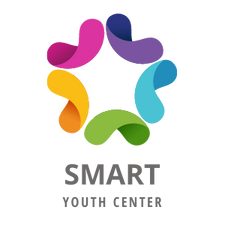Project Result 1 – MOOC Course under Cerebrum.gr Platform
The MOOC Courses (PR1) practically will empower and train youth workers so that they can further develop any existing digital skills and competences, but above all be able to develop new ones, become familiar with the use of innovative digital tools, and eventually be able to develop and use creative educational methodologies making the most of the available online resources that will be concentrated in the Digital toolbox.
The use and exploitation of these open source and free courses largely ensures an educational process that does not exclude anyone due to geographical, cultural, social, or economic constraints. In addition, the nature of these online courses and the structure of educational content are such that they do not require the physical presence of the user at certain times and days. Users are free to formulate their own monitoring and participation schedule in the various course chapters of MOOC, in their own free time, and even at the end of each chapter have the possibility of repetitions, self-evaluation of their progress through special tests and questions to the instructors.
The MOOCs are available on the Digital Platform of Asynchronous Learning Cerebrum.gr, led by I.R.T.E.A., where anyone can have free access to the developed material and learn more about Digital Youth Work and all the interconnected topics around it.
Visit Cerebrum Digital learning platform | e-learning ecosystem
Project Result 2 – Virtual Reality Platform
The Virtual Reality Platform (PR2) for the implementation of digital activities emerges as an evolution after the end of the MOOC training process and offers learners the possibility of simulating an environment that provides a high degree of interaction and direct contact of the user with it.
The VR environment will act as a safe field of experimentation on the knowledge and theory gained by the trainees in the first stage of the project. Within the platform users will be able to simulate electronic, mixed, and distance learning and learning environments, safely, and with the help of modern technological tools, thus developing the corresponding digital and pedagogical skills and competences described in the project results section.
Project Result 3 – Pilot Application of Digital Activities
The Digital Activities Pilot Application of Digital Activities (PR3) is the general rehearsal for the implementation of the planned results of the project, into which this call for participants contributes. Through its implementation, the consortium will have the opportunity to better evaluate the results of the first 2 PRs in an “experimental” phase, to respond to any problems that may arise, and to resolve them using the method of backtesting. This means that the consortium will carry out evaluation actions of the first two PRs using evaluation methodologies that are rigorous, systematic, and continuous.
The methodology used for this Project Result follows:
1. Participants’ preparation
1.a. The leader-partner, with the contribution of teams of the other partners, will implement a series of Webinars (preparatory meetings) to the participants to help them understand the next stages and to provide information and support. Provision of supporting material/guides that will facilitate the content and activities’ creation, and guides with technical information regarding VR use.
1.b. Implementation of online meetings with the participants to prepare for the VR activities. Participants will split into groups and each one, with the guidance of the leading organization and the partner responsible for the VR, will take part in these online meetings, during which they will plan their activities. I.R.T.E.A. and BOLT’s presence will contribute to monitoring the applicability of everything decided from the groups.
2. Implementation of pilot youth activities. After defining the activities’ content, their implementation will follow. Each group responsible for coordinating each activity will present the pilot application of the digital tool/activity decided by performing it to the rest project participants.
3. Collecting activities in a Report. I.R.T.E.A. will assume the responsibility to coordinate the procedure of pilot application and to gather, describe and outline everything that will take place during the Pilot Activity. This material will be included in Project Result 4, the Toolbox. This way, the viability of the results, is ensured. These results will be available for general use and, in any case, for anyone leading an educational process using non-formal learning methods and, of course, youth workers themselves. This way, participants will experience firsthand the interactivity of a Virtual Youth Center and enjoy all the advantages that occur as a result.
4. Technical Information Guide. This Guide, which will be created to reflect technical, practical information which will be useful to the next users of the VR, will be part of this part’s results.
Project Result 4 – Creation of Toolbox with Digital Tools
Finally, the Creation of Toolbox with Digital Tools (PR4) that will be created, will be open and free of charge, accessible to all, ensures the continuity of the project beyond its official ending date, as it will continue to be enriched with material from all partners. The Toolkit provides learners with the most innovative and up-to-date digital applications for the development of new pedagogical methods and the implementation of digital interactive workshops.
